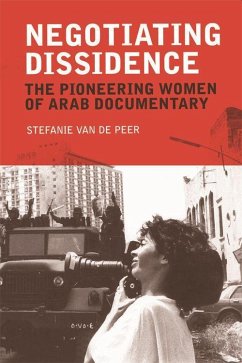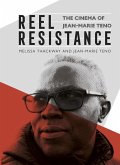'Disputing the notion that documentary exploits the vulnerable, Van de Peer's fascinating study of great Arab women documentarists shows how subject, filmmaker and viewer can collaborate in the creative work of solidarity and understanding. Rich with historical context, the book is also an ideal introduction to Arab cultural history since 1967.' Laura U. Marks, Simon Fraser University In spite of harsh censorship, conservative morals and a lack of investment, women documentarists in the Arab world have found ways to subtly negotiate dissidence in their films, something that is becoming more apparent since the 'Arab Revolutions'. In this book, Stefanie Van de Peer traces the very beginnings of Arab women making documentaries in the Middle East and North Africa (MENA), from the 1970s and 1980s in Egypt and Lebanon, to the 1990s and 2000s in Morocco and Syria. Supporting a historical overview of the documentary form in the Arab world with a series of in-depth case studies, Van de Peer looks at the work of pioneering figures like Ateyyat El Abnoudy, the 'mother of Egyptian documentary', Tunisia's Selma Baccar and the Palestinian filmmaker Mai Masri. Addressing the context of the films' production, distribution and exhibition, this book also asks why these women held onto the ideals of a type of filmmaking that was unlikely to be accepted by the censor, and looks at precisely how the women documentarists managed to frame expressions of dissent with the tools available to the documentary maker. Stefanie Van de Peer is Associate Research Fellow for an AHRC project on Transnational Moroccan Cinema at the University of Exeter. Cover image: photograph by Farida Hamack, 1982 © Farida Hamack/Jocelyne Saab Collection Cover design: [EUP logo] edinburghuniversitypress.com ISBN 978-0-7486-9606-2 Barcode
Hinweis: Dieser Artikel kann nur an eine deutsche Lieferadresse ausgeliefert werden.
Hinweis: Dieser Artikel kann nur an eine deutsche Lieferadresse ausgeliefert werden.








